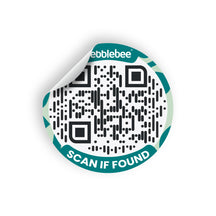If you are one of the 62% of Americans who have either lost your wallet or had it stolen from you, you understand the pain points of replacing everything. The good news is that since we are globally shifting to more digital payment methods, the actual loss of liquidity is becoming obsolete.
On the other hand, canceling your cards, updating your passwords, and waiting for your new items to arrive can be frustrating. Regardless, there are some things that you need to have on your person at all times, no matter the risk factors associated with losing your wallet.
One option is to take a proactive approach instead of a reactive one by only keeping the absolute necessities with you in your wallet and employing a Bluetooth tracking device in your wallet.
With all that in mind, let's take a look at what to keep in your wallet at all times.
Always Keep Identification In Your Wallet
This is the easiest call of the bunch - you need to be able to prove your identity and your credentials should you need to do so. This is important for several different reasons, including the following:
- Proof of Identity
- Proof of Age
- Proof of Address
- Driving Eligibility or Restrictions
- Medical Concerns
- Identifies You If You Are Incapacitated
- Access Eligibility Restrictions (like to a bar or age-restricted store)
- Travel Restrictions
- Vaccination Status (in some cases)
Emergency Cash is Wallet 101
Consider a small amount of "walking around money" amongst your wallet necessities. You shouldn't keep too much in case of theft or the loss of your wallet (which we'll cover in a bit). If you live in or are traveling to or through a rural or otherwise remote area, having cash can be a lifesaver. Believe it or not, some places still don't accept cards, let alone crypto or even Apple Pay.
There are plenty of other instances where cash can come in handy, as well. Food trucks often prefer cash, as well as servers at your favorite restaurants. It also comes in handy when you want to pay someone back for something but are short on your PayPal or Venmo funds.
Insurance Cards
You can never predict what may happen when you leave home, so keeping your insurance information handy in your wallet is a must. Granted, you don't necessarily need to be carrying around your life insurance policy or something like your pet health insurance card, but keeping the necessities to help cover emergencies is vital.
These things include your health insurance in case you suffer an injury or medical event and your auto insurance in case you are involved in an accident. The information on these documents is confidential, but won't be crippling if it is stolen, lost, or otherwise compromised. If you are pulled over while driving by a law enforcement officer, for example, proof of insurance and your identification are definitely going to be two pieces of documentation that you'll need to present immediately.
Emergency Contacts
Another wallet necessity is to have a list of emergency contacts. If you are unfortunate enough to experience one of the above-mentioned circumstances and be incapacitated or otherwise rendered noncommunicable, having a list of names and contact information can literally save your life.
Something as simple as a hand-written notecard tucked into one of the pockets of your wallet should suffice, especially for police officers or other first responders that may need to contact your next of kin quickly.
Contacts that you should keep on hand include:
- First and Second Emergency Contacts
- Primary Care Provider Contact
- Insurance Contact
- Known Medical Issues
- Current Prescriptions
- Any Supplements You Take
- Dates of COVID-19 Vaccinations
Debit and Credit Cards
This one may give you pause, but remember that they are easily canceled, closed, and replaced in the event of loss or theft. You'll need to carry a bit of cash as well as we touched on earlier, but in a strange twist, some places no longer take cash! Being as "liquid" as possible with your funds has never been more important.
There is some understandable hesitation in carrying several different cards because if you lose your wallet or it is stolen, you could face some pretty swift and devastating financial issues. However, all of these are (again) very easily canceled and if a thief has gained access to your accounts, your bank or the authorities will work hard to get you your stolen funds recompensated.
Heavily Used Discount Cards
It seems that every brick-and-mortar business these days has some sort of discount or "VIP" rewards program that comes with a card that ends up stuck in the back of your wallet unused for years. If you have one or two specific businesses that you frequent (like a grocery store or coffee shop), it can pay off, in the long run, to hang on to those discount cards.
Bluetooth Wallet Tracking Device
None of the things mentioned above will make a bit of difference if you aren't able to quickly locate your wallet. Sure, you can go through the trouble of canceling everything and requesting new materials, but it stands to reason that finding the thing would be much easier.
If your wallet is equipped with a Bluetooth tracking device, you can not only find it quickly in your home if you've misplaced it - you can report its exact location in real-time to law enforcement if it has been stolen.
Keep Tabs On Your Personal Security
Cyber security is a big issue in today's world, but there is still the danger of losing your wallet or being the victim of theft in real life. Additionally, some folks are just a little more forgetful than others and have a serious challenge with misplacing important personal items like your wallet from time to time.
Now that you've got some guidance on the most important things in your wallet, take a look at some of our other products. If you have any questions or would like a more in-depth specification of our products, please contact us.







